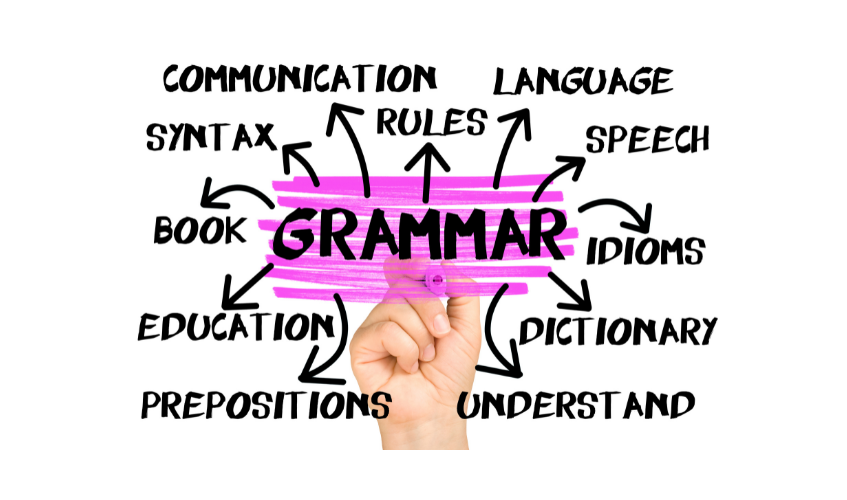
by Erica L. Meltzer | Aug 29, 2022 | ESL
After some unexpected delays, the Critical Reader Idiom of the Day email program is scheduled to launch on September 6, 2022. It is generally geared toward helping IELTS candidates prepare for the Speaking and Writing portion of the exam, but anyone who wants to improve their knowledge of idiomatic English is welcome to sign up.
The program is entirely free; to join, just enter your address below.
(more…)

by Erica L. Meltzer | Jun 23, 2022 | CELPIP, ESL, IELTS, Vocabulary
The Critical Reader is excited to announce the sometime in the next few weeks (exact date TBA), we will be launching a free daily email idiom program for English learners.
If you would like to sign up, please enter your email in the form below. (Note that you must use the form to register; comments for this post have been disabled.)
The focus will be on words and phrases that can be used in IELTS Writing and Speaking, but the content will also be broadly relevant to other popular tests, including TOEFL, PTE, and (especially) CELPIP. And if you’re just looking to improve your English in general, you’re of course welcome to join as well.
Every day, members will receive an email with a new expression + definition, along with a sample sentence clearly illustrating its use. Both informal and formal language will be covered and labelled appropriately.
This program does not focus on the clichés commonly taught in ESL classes or on social media (e.g., A piece of cake, once in a blue moon) but rather on common, contemporary phrases and collocations that can help your speaking or writing sound more natural.
In addition, if there are any expressions you find particularly confusing or would like to have a better understanding of how to use, please feel free to let us know, and we will do our best to incorporate them into the program.

by Erica L. Meltzer | May 4, 2022 | Blog, General Tips, Grammar (SAT & ACT)
Although but and however have the same meaning, they are punctuated differently when used to join complete sentences:
- but follows a comma and is not followed by any punctuation
- however follows a period or semicolon and is followed by a comma
For example:
Correct: An increasing number of people at the company bike or take public transit to work, but many employees still prefer to drive.
Incorrect: An increasing number of people at the company bike or take public transit to work. But, many employees still prefer to drive.
Correct: An increasing number of people at the company bike or take public transit to work. However, many employees still prefer to drive.
Correct: An increasing number of people at the company bike or take public transit to work; however, many employees still prefer to drive.
Incorrect: An increasing number of people at the company bike or take public transit to work, however, many employees still prefer to drive.
On the surface, the fact that these two words must be punctuated differently might seem odd—the kind of persnickety little rule that tends to give grammar a bad name. However, it actually exists for a reason. (more…)

by Erica L. Meltzer | Apr 30, 2022 | ACT English/SAT Writing, Blog, Grammar (SAT & ACT)
I recently encountered someone who, after many years of hearing tutors advise students to “pick the shortest” answer on ACT English and SAT Writing, decided to see how often that option actually was correct. After going through a bunch of ACTs, she discovered that the shortest answer was in fact correct only a relatively small percentage of the time. She was quite incensed about this fact, and took it as evidence that students should not be encouraged to select their answers based on length.
Now, for a tutor who advises a blunt, just-pick-the-shortest-answer-if-you’re-not-sure approach, this is a reasonable criticism.
Otherwise, however, I think it misses the point.
Fundamentally, “shorter is better” is a general guideline; it is not intended to be an ironclad rule for choosing answers. If the shortest answer were indeed always correct, even just on rhetoric questions, then SAT and ACT grammar would be far too easy to game, and many more students would receive high scores than is actually the case. (more…)

by Erica L. Meltzer | Apr 22, 2022 | Issues in Education, Phonics, Reading (SAT & ACT), Tutor Interviews, Tutoring, Tutors
At the beginning of March, I spoke with Amy Seeley and Mike Bergin at the Tests and the Rest podcast about some of the issues involved in helping struggling teenage readers prepare for standardized tests. The interview was originally scheduled for 25 minutes, but our conversation picked up so much steam that Amy and Mike decided to keep going and turn the interview into a two-parter.
The first part aired a few weeks ago, but I’ve been so busy that I actually forgot to post it (whoops!), but now that the second part has aired, I really don’t have an excuse.
Listen to Part 1, and Part 2. (more…)

by Erica L. Meltzer | Apr 5, 2022 | CELPIP, English Proficiency Exams, IELTS
I’ve recently encountered a number of essays that were written for the CELPIP but that seemed to have been produced by candidates who appeared to have switched from the IELTS (GT) and were still writing essays geared more to that test, or to have been advised by people who did not fully understand how the two tests differ.
To be sure, there is significant overlap between IELTS and CELPIP writing, particularly in terms of Task 1 (formal, semi-formal, or informal letter in both cases; approximately 20 minutes for IELTS, 27 minutes for CELPIP). However, there are real differences when it comes to Task 2. Candidates who are either trying to decide which exam to take, or switching from one to the other, must understand the expectations and criteria for each. (more…)

by Erica L. Meltzer | Mar 26, 2022 | Phonics, Tutoring
I recently had the pleasure of being interviewed (for the third time!) by Amy Seeley and Mike Bergin on their podcast Tests and the Rest. During the course of what ended up being a marathon conversation about how to help struggling older readers—Amy and Mike ended up having to split our discussion into two parts!—we covered a wide range of topics, and it was only after we had finished that I realized I hadn’t gotten in quite as many practical tips as I would have liked. So obviously I had to post my top ones here instead. And if you’re interested in the full webinar (covering the basics of what’s come to be known as “the science of reading” and walking you through a full, age-appropriate phonics program for teenage readers), you can find it at video.thecriticalreader.com.
1) Have students put their finger on the page and follow along with the text as they read
I’ve written about this in a number of posts over the years, but this is one strategy I truly cannot emphasize enough. For students who habitually remove their eyes from the page, it is absolutely crucial to improving comprehension. You cannot understand what a text literally says if you’re not looking at the words!
To the greatest extent possible, the student’s finger should be under the word they are reading at any given time—it should not lag behind, trail off, or suddenly jump ahead. Hand-eye coordination: it’s not just for sports. (more…)

by Erica L. Meltzer | Feb 13, 2022 | The New SAT
If you’re someone with any sort of interest or stake in the college admissions process, you’ve probably heard that the SAT is going digital in the next couple of years. If you or your children will be preparing for the SAT when the test changes, or you work with students who will be prepping during that time, you’re probably wondering how everything is going to play out. And if you use Critical Reader guides, or are planning to use them, you’ll obviously want some idea of whether you should do your best with the current material or wait for updates.
So, to start with the basics.
First, yes, I will be revising my books to reflect the updated test. Unfortunately, however, I can’t begin that process until I see official practice material that reflects the exact structure and content of the digital version, and the only sample currently provided by the College Board doesn’t fit the bill. They seem to have taken an old exam and plugged it into the new software so that it is possible to see how things are literally formatted on the screen, but not how the new sections and test are actually structured, the number and types of questions, etc. Disappointing, but not particularly surprising.
According to the CB, more accurate practice material will be available in the summer or fall of 2022, so I’m essentially stuck until then. As always, I’ll post updates when I have a better idea of when things might be available, but at this point, I just don’t have a clear sense of how extensive the revisions will need to be. That said, I will do my utmost to have new editions available by Fall 2023. (more…)

by Erica L. Meltzer | Feb 5, 2022 | Blog, IELTS
It’s not exactly a secret that many IELTS candidates are unpleasantly surprised when they receive their Writing scores; it’s not uncommon for marks in this area of the test to be a full band, or even a band-and-a-half, lower than in the other three sections. Very often, they wonder whether there has been some kind of mistake, and one of their first question is usually whether it’s worth it for them to request an Enquiry on Results (EOR) and have their essay re-marked.
As I’ve written about before, one of the overlooked challenges of the IELTS Writing test is that it is always administered third, after Listening and Reading. By that point, most test-takers are already starting to get tired from the intense concentration required in the previous sections, and shifting into writing mode can be very difficult. If a normally strong writer does take a little while to warm up, it is entirely possible that the beginning of their Task 1 response will not in fact be representative of their overall skill level.
In other cases, a test-taker may get through Task 1 without a problem and then crash at the beginning of Task 2, only to recover partway through their essay. By that time, however, the damage may have already been done. (more…)

by Erica L. Meltzer | Jan 27, 2022 | ESL, IELTS
Even if you’ve studied English for years and are very proficient in the language overall, you might still have trouble with some of the constructions covered in this post. Because they are so common, learning to use them correctly will immediately make your English sound more natural and fluent.
1. One of the + plural noun
The emphasis is on the group that one belongs to.
Correct: One of the things I like most about my city is the beautiful architecture.
Incorrect: One of the thing I like most about my city is the beautiful architecture.
Another common mistake involving one of the is to use the “base” form of an adjective rather than the superlative form (most + adjective or adjective-est). While this construction is technically acceptable, it is not something that native speakers say. The point is to emphasize that something belongs to an extreme group.
Correct: Skiing is one of the most popular winter sports.
Avoid: Skiing is one of the popular winter sports.
(more…)

by Erica L. Meltzer | Jan 19, 2022 | Grammar (SAT & ACT), IELTS
Of all the misunderstood grammar terms in the English language, “complex sentence” is perhaps the one that occupies the very top spot.
The problem essentially results from the fact that the word complex has one meaning (very complicated) in everyday language, but a very different meaning in formal grammatical terms.
Not realizing this, most students assume that being asked to write complex sentences means that they are supposed to write sentences that are extremely long and stuffed with all sorts of high-level constructions when that is not at all the case. (more…)

by Erica L. Meltzer | Jan 13, 2022 | IELTS
One of the biggest and most common traps that IELTS candidates fall into when writing Task 1 Academic Training essays involves spending too much time citing specific figures while overlooking the bigger picture that graphic(s) are used to convey.
To be clear: Your goal in Task 1 is essentially to tell a “story” about the graphic(s) so that a reader can quickly understand a general trend or phenomenon, not just provide a series of specific details and statistics. To that end, you must identify the overall takeaway and present it to the reader in a condensed way (no more than a sentence or two) so that the figures you cite can be understood in context of the larger idea.
Although the IELTS Band descriptors may not spell out the point of Task 1 quite so explicitly, they are perfectly clear about what is required to score Band 7 in Task Achievement: successful candidates must have a paragraph that presents a clear overview of main trends, differences or stages.
Perhaps the most important thing to understand about an overview paragraph is that it should consist of a general description in words and by definition should not include details, i.e., specific numbers. Imagine that you are describing the graph to a child—your explanation should be that clear and easy to comprehend. (more…)

by Erica L. Meltzer | Jan 9, 2022 | IELTS
The short answer: No. Just don’t do it.
The longer answer: If your English is strong enough for you to convincingly insert made-up statistics into your essays, then it is probably unnecessary for you to do so. Basically, if you write at a solid Band 7.5/8+ level; have experience citing statistics in English in your writing for work or school; and want to have some fun with the test, then by all means, go ahead and make up a study or two. If you are among the other 97% or so of test-takers, focus on improving your grammar, vocabulary, organization, and ability to explain your ideas clearly.
I suspect that for most test-takers who decide to invent statistics or other types of research, the thought process goes something like this:
Research from prestigious universities looks very impressive, so if I make up a study from, say, Oxford or Harvard, then that’ll make my argument really strong. And a common number like 75% will look fake, so I’ll make up something really random like, I don’t know, 68.3% because that’ll seem more convincing. (more…)

by Erica L. Meltzer | Jan 5, 2022 | College Admissions
Given the number of colleges that are going, and now staying, test optional, it’s reasonable for students to wonder whether they still really need to sit for a standardized test. I suspect that there’s a fair amount of confusion surrounding this issue, particularly among students who have limited access to knowledgeable admissions guidance. Given that, this piece is intended to provide some general guidelines for when traditional standardized testing is, and is not, necessary.
So, do you need to take the SAT or the ACT?
The short answer: probably.
The long answer: probably, but it depends.
If you are only planning to apply to schools in the University of California system (which no longer considers SAT/ACT scores), and there is effectively no chance that you will later decide to apply elsewhere, then no, you do not need to take the SAT or the ACT.
If you are applying to less-selective test-optional schools (>50% acceptance rate) and can comfortably afford to attend without financial aid, then the choice of whether to take the SAT or ACT is up to you (particularly if you have strong grades and good AP scores).
If you are so staunchly opposed to standardized testing that taking the SAT or the ACT would represent an intolerable violation of your deepest-held principles, then you do not need to take one of those tests (although if you fall into that category, you presumably would have applied only to test-optional schools pre-pandemic anyway).
If you do not fall into one of those categories, then yes, it is a good idea to take the SAT or the ACT, or—a less good idea—both. (And for the record, I am not just saying this because I’m the author of a series of SAT and ACT books. Really.) (more…)

by Erica L. Meltzer | Jan 2, 2022 | Blog
During my post-college/pre-tutoring admin stints in two Ivy League humanities departments, I became heavily involved in the administrative side of graduate admissions and consequently developed a familiarity with many reputable undergraduate programs located outside the U.S.
Over the years, I’ve come to take this knowledge for granted, but I became newly aware of it recently while listening to Amy Seeley and Mike Bergin of Tests and the Rest’s interview with Brandon Miller, an immigration consultant who has helped many American students study in Canada at the post-secondary level. Although the discussion was extremely informative from a logistical and financial perspective—I actually had no idea that U.S. federal loans could be applied to Canadian institutions—there were a handful of schools and programs that I would have liked to hear (more) about, hence the inspiration for this post.
So that said, these are four Canadian universities/university programs that, in my experience, often fly under American applicants’ radar but that deserve a serious look from anyone considering attending college outside the United States. (more…)

by Erica L. Meltzer | Dec 20, 2021 | Blog, IELTS
Note: you can download this post as a pdf.
This guide covers 12 of the skills whose mastery generally corresponds to a score of Band 7 or above in IELTS Writing. It is by no means comprehensive—writing well in English involves far more than what can reasonably be covered here—but I have done my best to select the top concepts that IELTS candidates find particularly challenging, and that apply at a general structural level regardless of the topic or type of question involved.
To be clear: you do not need to be able to do every single thing on this list flawlessly in order to earn a Band 7 score. There is some room for error. But you must be able to do most of them, and do them consistently, in order to produce responses that contain mostly error-free sentences; remain clear and on-topic throughout; and are sufficiently cohesive and coherent.
Also, please note: The list below assumes that you know how to use standard spacing, punctuation, and capitalization. If you have difficulty with those aspects of English, you need to work on them first. (more…)

by Erica L. Meltzer | Dec 5, 2021 | IELTS, The Mental Game
In many way, IELTS Listening is as much a test of attention and multitasking as of aural comprehension. Regardless of accent, the recorded voices on the tape speak more slowly and clearly than people generally do in real life, and they do not use the kinds of slang* and idiomatic language that can be confusing to many non-native English speakers.
The difficulties of the Listening portion lie elsewhere, in processing the written information on the page and the spoken information on the recording at the same time, and in connecting one to the other. In principle, this is simple because the two convey the same information. However, they may not always be identical: the written portion may restate the recording word-for-word or, at certain points, it may paraphrase/condense the spoken part. When the latter occurs, it is easy to become confused and miss essential information simply because it takes you a few extra seconds to figure out which phrase or sentence on the page corresponds to what you are hearing. And in Listening, every second counts.
An additional challenge is that multiple-choice questions accompanied by a long list of answer choices are physically separated from the rest of the text, making it necessary to continually jump back and forth between different parts of the page while you listen. There’s a lot of content to manage, and if you spend just a couple of seconds too many re-reading an answer choice and stop paying close attention to the recording, you may miss the information you need to answer the following question. (more…)

by Erica L. Meltzer | Dec 2, 2021 | Blog, IELTS
1) A question is a general prompt; it is your job to “develop the topic”
I’m certainly not the first person to say this, but this is undoubtedly the single biggest issue for many IELTS candidates, especially in Part 1. In non-test life, when someone asks you a simple yes/no question such as Do you live alone or with other people? it’s perfectly fine to just say By myself.
An IELTS response that will put you on track for a high score, however, is something along the lines of I live in a house with a couple of other people right now, but I’m actually planning to move into a studio in a couple of months. I get along with everyone pretty well, but to be totally honest, I’m the sort of person who does better alone, so I’m really looking forward to having my own space.
It’s ok to speak until the examiner cuts you off. You only get points taken off for talking too little, not for talking too much. If you are not naturally talkative, you will need to practice pushing yourself to keep giving more information than what certain questions seem to call for. Although this may seem deceptive on the IELTS’ part, it’s actually right there in the Band Descriptors: high-scoring responses are “fully” developed—by definition, that involves giving a lot of information. (more…)

















